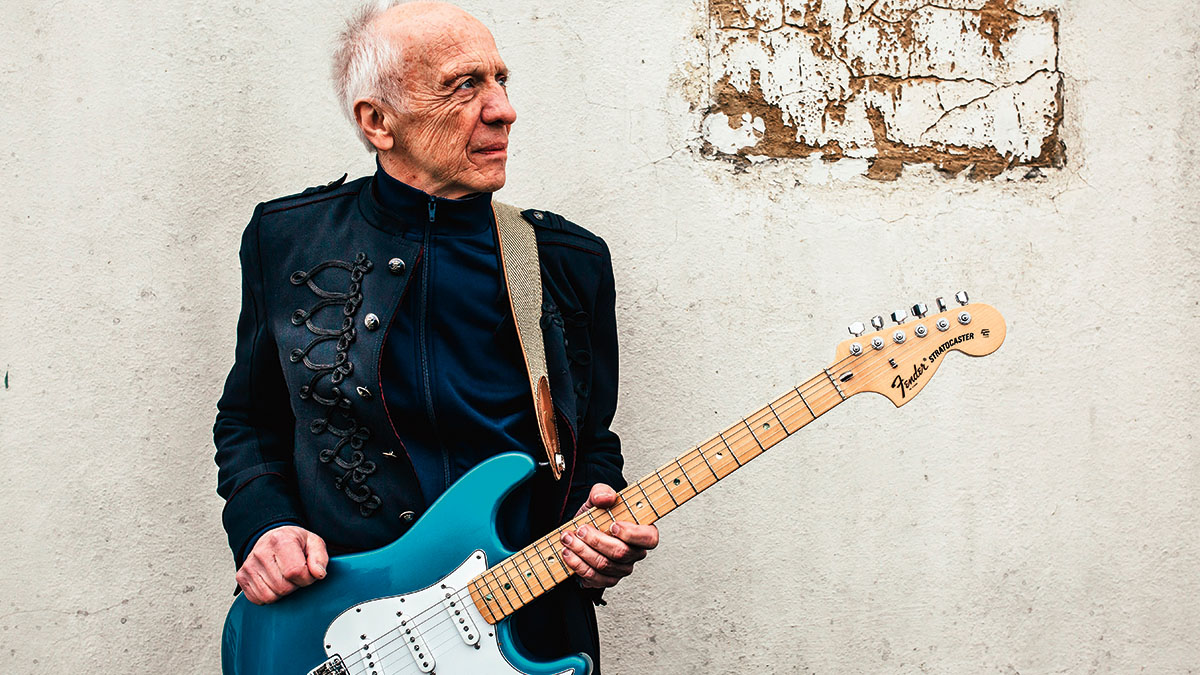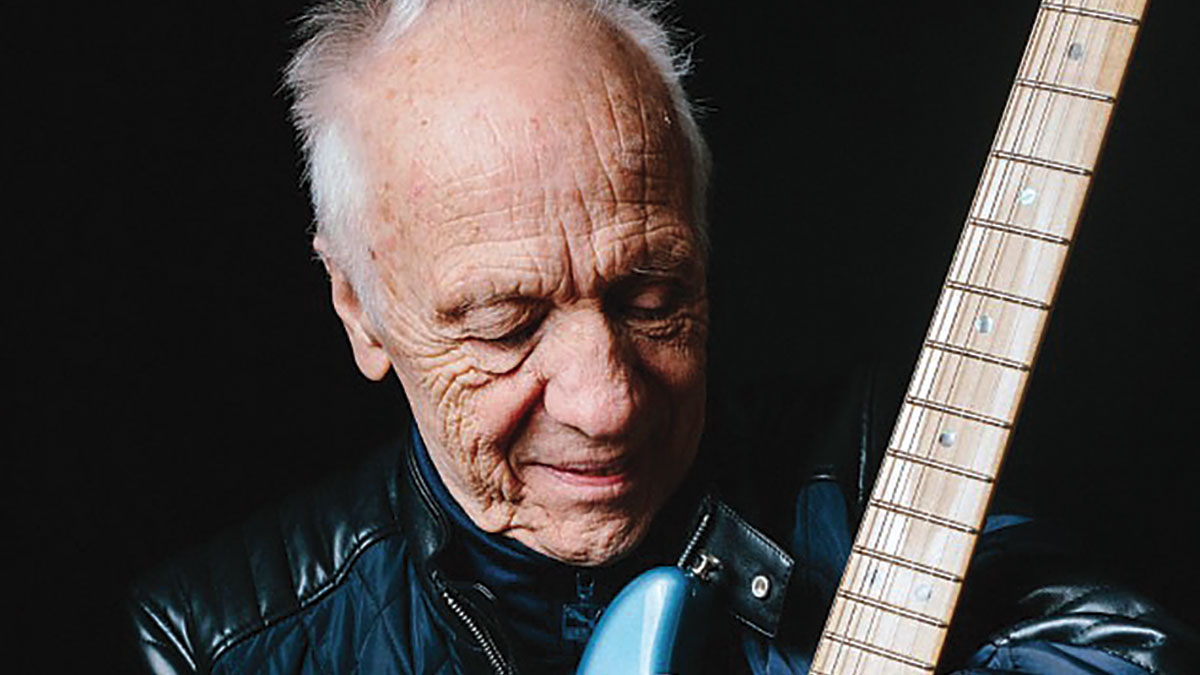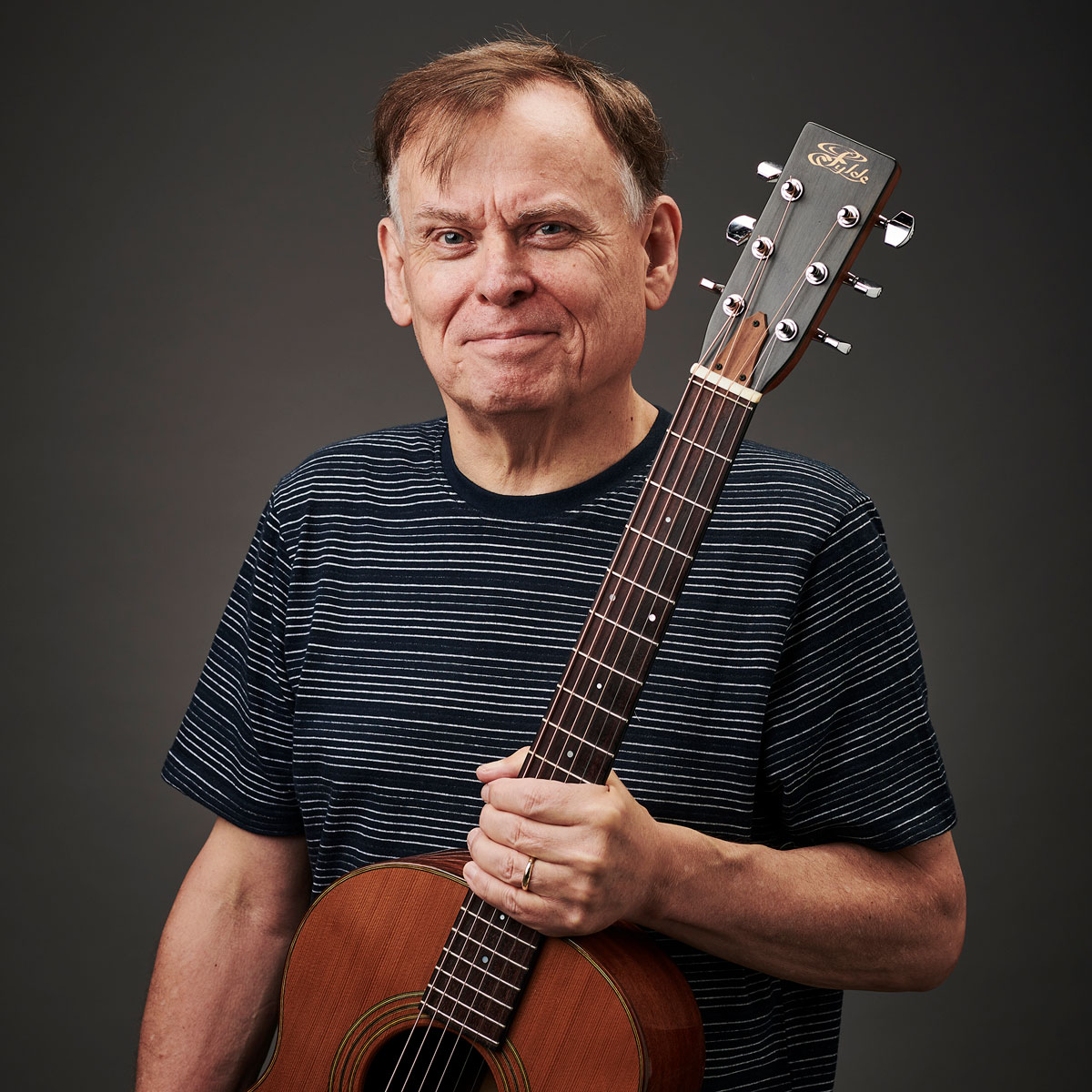“Martin Barre had a Strat and it was on the stage one day – I picked it up and plugged it into my amp. Immediately, I thought, ‘I like the voicing of that…’”: Robin Trower looks back on making some of guitar’s most influential recordings
The Stratocaster master reflects on his first encounter with Fender’s finest, and the days when guitar-led power trios shook the foundations with high-decibel progressive rock

The fact that we’re enjoying so many 50th anniversary album re-releases now proves the point that the early 1970s was an absolute treasure hoard of brilliant music. One such gem is the first solo album from Robin Trower.
Initially coming to prominence with Procol Harum, it wasn’t long before Robin flew the nest to put his own band together with his signature Uni-Vibe-drenched psychedelic electric guitar sound to the fore. We catch up with Robin to reminisce about the album that set the course for his solo career.
How did you come to put the band together for the album?
“When I left Procol Harum I actually teamed up with a singer called Frankie Miller and we put a band together. It was Clive Bunker, from Jethro Tull, on drums, and Frankie brought in a friend of his, James Dewar, on bass and background vocals. The band didn’t really work, we didn’t make any real headway and we never recorded. But I did discover what a great singer Jimmy was.
“Working with Frankie sort of fell by the wayside and I decided I wanted to have a three-piece and Jimmy was absolutely ideal for that on bass and vocals. So he and I got together and searched for a drummer. I think it was Jimmy, actually, that found Reg Isidore and we started rehearsing material for the first album.”
The power trio was a big thing back in those days, with bands like Cream, Taste and Mountain blazing a trail.
“Yeah. I think I liked the idea of it because it just gave me a bit more room, a bit more space, so it became more about the guitar than the singer, if you know what I mean. Even though Jimmy was a fabulous vocalist. But the writing became more about what the guitar was doing.”
Get The Pick Newsletter
All the latest guitar news, interviews, lessons, reviews, deals and more, direct to your inbox!
What was it like to be a touring band in the early ’70s?
“Well, we did a little bit of gigging around London, but when the album came out the record company, Chrysalis, put us on as support for two of their big acts. One was Jethro Tull and the other was Ten Years After, so we got incredible exposure – in the States, especially.
“And because it was such a big tour we were travelling very comfortably, flying and staying in nice hotels, which we wouldn’t have been if we’d have just been going around playing clubs and what have you.”
Can you remember what the writing sessions were like for Twice Removed From Yesterday?
“I think what would happen was I would bring in the guitar parts for the song and Jimmy would do the vocal part. We used to do it mostly in rehearsal and I think we used to rehearse down in the studio that belonged to The Rolling Stones, which was south of the river somewhere. I can’t remember exactly now. So long ago!”

What about gear for the recording sessions?
“Well, for that album I was using Marshall 100-watt amps and I had a Uni-Vibe, which I started using in Procol Harum, and a Fuzz Face. There weren’t very many effects pedals then, you know. The Uni-Vibe was quite a unique thing. I think they were trying to imitate a Leslie effect, and that became very much part of my signature sound, especially on Bridge Of Sighs.
“I’m pretty much convinced that Twice Removed From Yesterday was all done at Olympic Studios in Barnes. We had Matthew Fisher producing and they had very, very good engineers. We played live and the vocals went on after we laid down the backing track – as did probably most of the lead work as well. I think the only song on the album that the lead and everything went down live was Daydream.”
Were the Marshall amps wound right up when you were in the studio?
“I can’t remember if I was using one or two, but, yeah, I think I was playing pretty loud. And the Fuzz Face, as I remember, when you were plugged through it, even though it was off, it still boosted the signal. So that’s what I used it for mostly, there’s just that slight boost, rather than actually putting the effect in. It must have gone through part of the circuit even when it wasn’t on.”
It’s been said that, where Fuzz Face pedals were concerned, they varied a lot and sometimes you had to try a few of them before you found a good one. Was this your experience?
“No, I’ve just been lucky with the one I had. I only had one during that time – and I think it probably was the only album I actually used a Fuzz Face on. After that I had a custom boost built by a friend of mine.”
Once I had the Strat, even though I still had the Gibson I’d been using, I only used the Strat and I think I left the Gibson at home
You’ve been using Stratocasters practically all your career. When did you first come across one?
“I discovered them when I was in Procol Harum when we were opening up on a UK tour for Jethro Tull. Their guitarist, Martin Barre, had a Strat as his second guitar and it was on the stage one day when we were getting ready to soundcheck and I picked it up and plugged it into my amp. I must admit it was very rude because I hadn’t asked him!
“Immediately, I thought, ‘I like the voicing of that…’. It had such a different voice to the Gibson I was using at the time. So I think I went out the next day and bought a Strat and started using them there and then. Once I had the Strat, even though I still had the Gibson I’d been using, I only used the Strat and I think I left the Gibson at home.”
Are you still using similar gear now to the equipment you were using back then?
“What I use now is my signature model Strat that the Fender Custom Shop made for me and a couple of Marshalls, an overdrive pedal and a pedal that has replaced the Uni-Vibe called a Deja’Vibe, which is made by Fulltone. I still like a basic guitar tone, I don’t like to mess with it too much. Even though I use an overdrive I’m still trying to keep that Strat sound.”
After the release of Twice Removed From Yesterday you must have begun to work towards Bridge Of Sighs.
“Yeah, I mean, we were very fortunate to be on those big tours in the States. At the time the radio would play stuff that wasn’t in the Top 30, as it were, or wasn’t pop or that kind of thing. So you could get a lot of airplay as well to go along with the tour. But I think we did really well and it really set us up for Bridge Of Sighs.”
Which of the tracks from Twice Removed From Yesterday do you think have stood the test of time?
“Well, Hannah, obviously, Daydream – I’ve always sort of had a soft spot in my heart for that one. I like Man Of The World. Those are my three favourites. But there’s nothing I’m ashamed of on that album. It was just a matter of the ideas I was coming up with. You know, I’d come up with an idea and we’d work on it. I was really just starting to get into composing for the guitar – more and more as we worked on the material for the album.”
Coming up to date, what does the immediate future hold for you?
“I’ve got an album coming out in October and it features an amazing singer called Sari Schorr. The album is called Joyful Sky and I’m chuffed with it. It’s absolutely wonderful. I mean, she’s dynamite! I’m looking forward to the album coming out.
“At the moment I’m in and out of the studio working on another album, which is, I should say, 75 per cent finished. I wanted to have something in the can in case I bought the farm!”
- Twice Removed From Yesterday 50th Anniversary Edition is out now via Chrysalis.
- Joyful Sky is available to preorder and out Oct 27 via Provogue.
With over 30 years’ experience writing for guitar magazines, including at one time occupying the role of editor for Guitarist and Guitar Techniques, David is also the best-selling author of a number of guitar books for Sanctuary Publishing, Music Sales, Mel Bay and Hal Leonard. As a player he has performed with blues sax legend Dick Heckstall-Smith, played rock ’n’ roll in Marty Wilde’s band, duetted with Martin Taylor and taken part in charity gigs backing Gary Moore, Bernie Marsden and Robbie McIntosh, among others. An avid composer of acoustic guitar instrumentals, he has released two acclaimed albums, Nocturnal and Arboretum.
“Even the thought that Clapton might have seen a few seconds of my video feels surreal. But I’m truly honored”: Eric Clapton names Japanese neo-soul guitarist as one to watch
“You better be ready to prove it’s something you can do”: Giacomo Turra got exposed – but real guitar virtuosos are being wrongly accused of fakery, too











